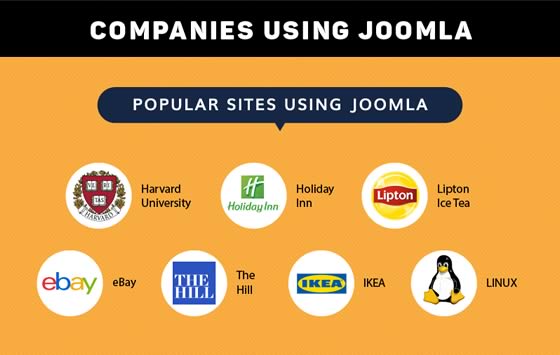I built my first Joomla(!) website in 2010, back when its market share was much closer to Wordpress'. Since then, just like when VHS clobbered Sony's BetaMax into obscurity, Wordpress' simplified beginner's curve has vaulted it far ahead of the pack in the CMS wars. Anyone with even a moderate bit of experience punching keys on a computer can install it with a few points and clicks and soon be up and running and making blog posts.
But what about going beyond that? You won't have to move too far away from simple Wordpress blogging to run into stumbling blocks that require mucking around in its code. It's almost as if Wordpress lures people in with its simplicity, only to get the average user stuck in a situation where they must then hire a coder to add any extra functionality beyond simple blogging. Hmmm... I wonder if there isn't a "coder's constortium" behind all this...? Haha.
So Why Choose Joomla Over Wordrpress?
Well, for starters:
- Wordpress was originally built for a single purpose: blogging
- Every add-on to Wordpress is called a "plugin", regardless of its purpsose. How completely unoriginal!
- Many of these plugins require you to learn "shortcodes" (a sneaky term for "you're going to have to learn to code")
- Wordpress sucks you in with its up front "ease of use". Just like McDonald's...
- Joomla on the other hand was built from the ground up as a multi-pupose web publishing platform, modeled after print publishing platforms such as Quark Express, Aldus Pagemaker, Adobe InDesign, etc. Its core database was designed with a hierachical structure in mind for everything from content organization to staff roles. As such it has built in functionality for:
- User roles and user groups (often necessary in businesses that are publishing content for different departments)
- Advanced user permissions (see above)
- Nested article categories (for building complex sites based on various content types)
- Complex menu structures with menu items showing any number of various page types (see Components list below)
- Easy to implement and highly effective multi-language support
- A built in Banner Ads feature that counts imporessions and clicks per ad, per client, per category, etc.
- Different types of extensions for different purposes:
- Components for displaying the core element of each page in the main "component" area of your chosen template. Think of magazine publishing, where the main focus on any given page may be an article, table of contents, a full page ad, etc.
- Home page with modules that highlight various areas of the site
- Articles component that can show a single article, a blog layout showing article intros from a chosen category, or featured articles from any number of categories
- Tagging component that can show articles grouped by common tags
- Simple or complex contact forms
- Banner ad component that can include multiple clients and ad categories, and tracks impressions and clicks per ad, client, and category
- Image galleries
- Shopping cart systems
- Classified ad systems
- Mapping component showing physical locations
- Donation systems for non-profits
- Membership components for paid site content
- Events management including payment integrations such as PayPal
- Modules for displaying content from many of the components listed above on any page you like in your choice of module positions provided by the template. Once again in print publishing terms, think sidebars, display ads, table of contents, graphics and charts, etc.
- Plugins to modify the output of the code site wide, such as breadcrumbs, page navigation, word subsitution, etc.
- Components for displaying the core element of each page in the main "component" area of your chosen template. Think of magazine publishing, where the main focus on any given page may be an article, table of contents, a full page ad, etc.
And these are just a few things I came up with off the top of my head. If you're a web developer with a decent knowledge of HTML/CSS (that's me!), and some experience with databases (think FileMaker Pro for example), Joomla may just be for you.
There is also an article out there that someone way more geeky than me wrote about how Joomla's database structure is way more geeky (in a good way) than Wordpress'. If I can find it again I will post it. I wish I had bookmarked it. In the meantime, here are some more articles that delve deeper into why Joomla is better than WordPress:
- A dozen (Most Ridiculous) Myths about Joomla
- Why Joomla Is Better than WordPress in 2020
- 30+ Joomla Statistics for the Newly-fledged Webmaster in 2020
- WordPress vs Joomla SEO Test Results
So there you have it in a nutshell. I hope I get flamed over this article - it will mean it's getting some hits. So bring it on, Wordpress and Drupal geeks! Haha!
Until next time,
Vince

